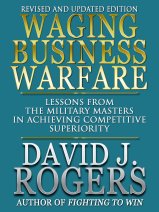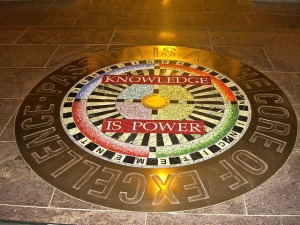The senior editor of a literary journal asked a writer friend of mine to submit a piece for a future issue, but my friend who thanked the editor for the compliment has no interest in submitting anything to that magazine or any other. I’ll call her Kathy because that’s the name she wishes she  had, but doesn’t. It is a highly-regarded journal and would enhance any serious writer’s reputation to appear in it. That journal had published other pieces of Kathy’s in the past during her particularly prolific period when work poured out of her and was in demand by editors and readers. Some of her books were being published at the time, and many of her articles appearing in magazines were achieving record readership scores.
had, but doesn’t. It is a highly-regarded journal and would enhance any serious writer’s reputation to appear in it. That journal had published other pieces of Kathy’s in the past during her particularly prolific period when work poured out of her and was in demand by editors and readers. Some of her books were being published at the time, and many of her articles appearing in magazines were achieving record readership scores.
Kathy is far from alone now being a writer who works as hard as ever at the writer’s craft to perfect her work, and has high standards–revising, refining, embellishing, cutting, and improving endlessly–but does not care to be published by book or magazine publishers. People like Kathy enjoy writing for its own sake and its own sake alone. Publication that was once important to her is not important to her now. People ask her, “Don’t you get a kick out of seeing your name in print?” and she answers, “I’ve seen it in print many times so it is not as big a thrill.”
 I am talking about the difference between writers whose overriding goal is to see their work in print–a Publication Focus–contrasted with writers whose overriding goal stops short of publication in which they are not interested. They are concerned solely with generating what is in their judgment the highest possible quality text–a Production Focus. The latter are more than contented to produce works they are proud of without seeing them published.
I am talking about the difference between writers whose overriding goal is to see their work in print–a Publication Focus–contrasted with writers whose overriding goal stops short of publication in which they are not interested. They are concerned solely with generating what is in their judgment the highest possible quality text–a Production Focus. The latter are more than contented to produce works they are proud of without seeing them published.
Having their work published seems an automatic motivation for writers that follows sequentially from writing the work, and is generally expected of writers–you are a writer and you write a story, for example, and then you are expected to submit it to a magazine (or a novel to a publishing house) where a committee of editors and managers evaluate it in comparison with other submissions and decide if it is suitable for them to publish. The submitting writers are competing for a prize and the prize they are competing for is seeing their name and their work printed, perhaps for pay, but even if not for pay, for the delightful satisfaction of well, having a work published which they can tell friends and family about, which for most writers is the whole point, the end goal for which they are prepared to work very hard.
What could writers who are not motivated to publish possibly be thinking, and what does motivate them to go on writing with no intention or hope of seeing the finished product in print where it would be read by hundreds, or thousands of others–or more–many of them fans of good writing?
Research
Production Writers who have no desire to publish don’t have to wait for money or praise or any external reward to be fully satisfied. All that  matters to them is that the works they produce be the best they have the skills to produce. They believe that because they are not interested in publishing but in producing the highest quality work they can, they are more creative and do better work than they would were they competing with others to see their work in print, and there are grounds for that belief.
matters to them is that the works they produce be the best they have the skills to produce. They believe that because they are not interested in publishing but in producing the highest quality work they can, they are more creative and do better work than they would were they competing with others to see their work in print, and there are grounds for that belief.
Harvard psychologist Teresa M. Amabile has spent her entire career trying to understand what motivates people to be creative and what are dis-incentives. She has staked her reputation on proving that creativity increases when you are what she calls intrinsically motivated and engage in the creative activity for the sheer pleasure it offers (as Production Writers do). If you write, paint, sculpt, dance, etc, to earn rewards other than the enjoyment, satisfaction, and challenge of performing the activity as well as you are able (as Publication Writers do), you are extrinsically motivated and become less creative. The work that results is not as finished-beautiful-aesthetically pleasing-masterful as it might have been.
Amabile tested subjects ranging from young children to college women, giving some of them rewards for doing the work. What they had  produced was then graded by professionals–seasoned painters grading the paintings, experienced writers the writing, etc. The results were significant in that no matter what the reward was or when it was given, if the subjects thought they were working for external rewards, even a little trinket, and not for fun and pleasure, they became less creative. But when they were light-hearted and fooling around and no external reward was involved, they were more creative and their work was better.
produced was then graded by professionals–seasoned painters grading the paintings, experienced writers the writing, etc. The results were significant in that no matter what the reward was or when it was given, if the subjects thought they were working for external rewards, even a little trinket, and not for fun and pleasure, they became less creative. But when they were light-hearted and fooling around and no external reward was involved, they were more creative and their work was better.
In one experiment Amabile divided writers into two groups. She had one group fill out a questionnaire about the joys of writing for its own sake such as being able to experiment with words. The other group filled out a different questionnaire about the external benefits of writing like being on a bestseller list. Writers in both groups then wrote short, haiku-like poems. Then a panel of judges—poets–rated the poems. The writers who had been thinking about rewards like bestsellers wrote inferior poems. Extrapolated, that suggests that it may be detrimental to the quality of your next novel to have making The New York Times list on your mind.
I had experiences that confirmed Amabile’s research in my writing life. When I was writing one book, my mind was solely on communicating in  a clear, informative, and entertaining way concepts that were unfamiliar to western thinking. It was a challenge because the concept of the book was totally new and original. Every day’s work of many hours was fulfilling, I didn’t spend a second thinking about how my book would do in the stores, only about the book’s clarity and how useful I could make it and how inviting it would be for readers. It was a highly successful and profitable book and my ambitions for the next book I began were high. But I found my thoughts losing focus. They often wandered away from the book’s content and style and how to satisfy the reader to where I would build the new house the new book’s royalties would bring me and the kind of cars I would buy. Both books received many accolades and made best seller lists. But whereas I wouldn’t change a single word of the first book, I live with the knowledge that the second book could have been better.
a clear, informative, and entertaining way concepts that were unfamiliar to western thinking. It was a challenge because the concept of the book was totally new and original. Every day’s work of many hours was fulfilling, I didn’t spend a second thinking about how my book would do in the stores, only about the book’s clarity and how useful I could make it and how inviting it would be for readers. It was a highly successful and profitable book and my ambitions for the next book I began were high. But I found my thoughts losing focus. They often wandered away from the book’s content and style and how to satisfy the reader to where I would build the new house the new book’s royalties would bring me and the kind of cars I would buy. Both books received many accolades and made best seller lists. But whereas I wouldn’t change a single word of the first book, I live with the knowledge that the second book could have been better.
Publication Writers in Contrast with Production Writers
Publication Writers often experience stress and worry about the chances of the work being published. But in contrast the Production Writer feels no pressure, no stress, and is relaxed. That experience can make Production Writers feel freer and bolder and unafraid of taking chances they might not otherwise take, but which might improve the work. That freer confident mood can lead to leaps in their performance. William Faulkner is a good example.
When Faulkner realized that his complex rhetorical style and subject matter weren’t those of a commercially-popular author (would not lead to extrinsic rewards such as high sales) he began a period of sustained creative energy. He started to become great. He decided to write for himself:  “One day I seemed to shut a door between me and all publishers. I said to myself, ‘Now I can write.” He started working on The Sound and the Fury, “thinking of books, publication, only in the sense in saying to myself, I wont (sic) have to worry about publishers liking or not liking this at all.”
“One day I seemed to shut a door between me and all publishers. I said to myself, ‘Now I can write.” He started working on The Sound and the Fury, “thinking of books, publication, only in the sense in saying to myself, I wont (sic) have to worry about publishers liking or not liking this at all.”
A disincentive Publication Writers must face is the inevitability that their work is going to be evaluated by editors and others. They are competing for the good opinion and a favorable decision of people who have power who will be passing judgment on the quality of the work, and indirectly, also the quality of the writer. That is why rejections can be so hurtful and discouraging, and taken so personally: “In rejecting what I have worked so hard on and put so much effort into they are telling me I am inadequate.” Thousands of writers make the decision to quit  writing every day. Most of them quit because of the heavy, depressing weight of too many failures and too few–if any–successes and the toll of failures on one’s confidence and sense of competence and self-esteem. Extraordinary self-confidence is necessary to persist in the face of failures and setbacks.
writing every day. Most of them quit because of the heavy, depressing weight of too many failures and too few–if any–successes and the toll of failures on one’s confidence and sense of competence and self-esteem. Extraordinary self-confidence is necessary to persist in the face of failures and setbacks.
The knowledge that the submission will be evaluated negatively affects the writer and tends to produce works that are more conventional. Some of them are written specifically to suit the publication as if to order. Magazines and publishing houses make very clear the kinds of materials they are in the market for and will publish. Possibly the works could have been better written had the writer been more relaxed and playful and had not been seeking the approval of editors so desperately.
Writers at ease and at work–in a favorable state for creativity–have many of the attributes of children at play. Psychiatrist D.W. Winnicott wrote that “it is in playing and only playing that the individual child or adult is able to be creative.” Psychoanalyst Erik Erikson said it is striking to see a two-year old child rolling a ball. They can throw the ball on the floor again and again, watching it roll a hundred times and never get  bored. Just as children do that, writers can do something remarkable. As fully absorbed as children, they can work on perfecting a single paragraph forty or fifty times without experiencing a moment of boredom while people who are not writers and think that one draft is sufficient are astonished that such a feat is possible. The conclusion of Amabile’s experiments was that a playful approach like that of children increases the likelihood of producing creative results, and that pursuing external rewards diminishes the person’s creativity.
bored. Just as children do that, writers can do something remarkable. As fully absorbed as children, they can work on perfecting a single paragraph forty or fifty times without experiencing a moment of boredom while people who are not writers and think that one draft is sufficient are astonished that such a feat is possible. The conclusion of Amabile’s experiments was that a playful approach like that of children increases the likelihood of producing creative results, and that pursuing external rewards diminishes the person’s creativity.
Being competitive makes it hard for most writers to be relaxed and in a light and child-like playful mood that is conducive to creativity. But competition is a major feature of most writers’ experience Out of necessity writers are forced to be competitive when they try to get their work published. There may be hundreds of other writers attempting to get their work published at the same time in the same magazine or thousands with the same book publisher.
In contrast, the absence of competition and evaluation (other than their own evaluation, perhaps severe, but coming from no one but  themselves) which Production Writers experience has been shown to improve the quality of the work that is produced. That is why so many famous writers think that they, and no one else, are the best judge of their work and why so many of them ignore or don’t ask for the advice of editors. Who enjoys being evaluated? Writers often dread evaluations, and evaluations negatively affect the writer’s mood and thus the quality of work that is produced. A Production Writer may ask for editorial assistance–to be helped–but not to be evaluated.
themselves) which Production Writers experience has been shown to improve the quality of the work that is produced. That is why so many famous writers think that they, and no one else, are the best judge of their work and why so many of them ignore or don’t ask for the advice of editors. Who enjoys being evaluated? Writers often dread evaluations, and evaluations negatively affect the writer’s mood and thus the quality of work that is produced. A Production Writer may ask for editorial assistance–to be helped–but not to be evaluated.
The best way to recognize which kind of motivation you have is to ask yourself if you’d continue doing the work if no reward were to follow. If you answer, “No way,” your motivation is that of a Publication Writer. But if you answer, “Of course I would; it wouldn’t affect my work whatsoever,” it is the motivation of playful, child-like Production Writers.
© 2022 David J. Rogers
For my interview from the international teleconference with Ben Dean about Fighting to Win, click the following link:
Order Fighting to Win: Samurai Techniques for Your Work and Life eBook by David J. Rogers
or
Order Waging Business Warfare: Lessons From the Military Masters in Achieving Competitive Superiority
or


 Buddhism sets up qualities a life must have if the person is to find fulfillment. One quality is “Right Livelihood:” To be most fulfilled the person must be in the occupation that most suits them and is most beneficial to them. My wife and I have four children. Each is very different than the others but is perfect for their occupation. The analytical one who loves mathematics is the director of revenue for a city. The organized one manages a number of people. The one who wants to help people is a therapist. The most sociable one is a real estate agent helping people find the home they will be most happy in.
Buddhism sets up qualities a life must have if the person is to find fulfillment. One quality is “Right Livelihood:” To be most fulfilled the person must be in the occupation that most suits them and is most beneficial to them. My wife and I have four children. Each is very different than the others but is perfect for their occupation. The analytical one who loves mathematics is the director of revenue for a city. The organized one manages a number of people. The one who wants to help people is a therapist. The most sociable one is a real estate agent helping people find the home they will be most happy in. All necessary components have to be present if you are to excel at the writer’s craft. If just one component is missing, you no longer have an ideal writer. If you are to succeed in an art there must be a fit between the talent you possess and the talent necessary to participate with distinction in the art.
All necessary components have to be present if you are to excel at the writer’s craft. If just one component is missing, you no longer have an ideal writer. If you are to succeed in an art there must be a fit between the talent you possess and the talent necessary to participate with distinction in the art. Writers and other artists should be able to recall many thousands of detailed memories that form a basis of their writings–a gift to recall sensations and experiences from many years earlier and to reconstruct them in their original freshness and vividness.
Writers and other artists should be able to recall many thousands of detailed memories that form a basis of their writings–a gift to recall sensations and experiences from many years earlier and to reconstruct them in their original freshness and vividness. Good writers can do that, but not all writers can, even some writers who work very hard trying to learn how to. Think of any writer’s skill–some people will master it easily, some only with great difficulty, and some will never master it. Whatever they do, some writers’ scenes are not effective.
Good writers can do that, but not all writers can, even some writers who work very hard trying to learn how to. Think of any writer’s skill–some people will master it easily, some only with great difficulty, and some will never master it. Whatever they do, some writers’ scenes are not effective. A writer should have an insatiable passion to write and the skill of persistence. Joyce Carol Oates is a prolific author of fifty-eight novels for a reason. She has good writing practices, and finds no reason why one who professes to be a writer shouldn’t be writing all the time. She says, “When writing goes painfully, when it’s hideously difficult, and one feels real despair (ah, the despair, silly as it is, is real!)–then naturally one ought to continue with the work; it would be cowardly to retreat. But when writing goes smoothly–why then one certainly should keep on working, since it would be stupid to stop. Consequently one is always writing or should be writing.”
A writer should have an insatiable passion to write and the skill of persistence. Joyce Carol Oates is a prolific author of fifty-eight novels for a reason. She has good writing practices, and finds no reason why one who professes to be a writer shouldn’t be writing all the time. She says, “When writing goes painfully, when it’s hideously difficult, and one feels real despair (ah, the despair, silly as it is, is real!)–then naturally one ought to continue with the work; it would be cowardly to retreat. But when writing goes smoothly–why then one certainly should keep on working, since it would be stupid to stop. Consequently one is always writing or should be writing.” From childhood on, there have been moments in my life–and I think you have experienced this in your life too—when I’ve had to perform and no one could help me—not my mother, not my wife, not a friend.
From childhood on, there have been moments in my life–and I think you have experienced this in your life too—when I’ve had to perform and no one could help me—not my mother, not my wife, not a friend. It’s very lonely knowing that whether or not you will succeed depends solely on your own skills, your own personality and character, your own preparation, and your own strengths. Then no one can help you, no one can write the novel for you, no one can paint the portrait for you today, or dance in your place, or perform your role in tonight’s play. You’re on your own, my friend. Will you be at the height of your talent today or won’t you? Will you have it? Will your work be good? Will you be satisfied?
It’s very lonely knowing that whether or not you will succeed depends solely on your own skills, your own personality and character, your own preparation, and your own strengths. Then no one can help you, no one can write the novel for you, no one can paint the portrait for you today, or dance in your place, or perform your role in tonight’s play. You’re on your own, my friend. Will you be at the height of your talent today or won’t you? Will you have it? Will your work be good? Will you be satisfied? When you write, you’re asking yourself, “Does it sound right?” “Does it flow?” “Is it a good quality?” You’re also “self-instructing.” Self-instruction is talking to yourself to guide actions and telling yourself what strategies you should use. A writer may self-instruct to use more imagery in the story, and self-monitor to count the number of images or tell herself, “My mind is starting to wander. I should focus my attention better.”
When you write, you’re asking yourself, “Does it sound right?” “Does it flow?” “Is it a good quality?” You’re also “self-instructing.” Self-instruction is talking to yourself to guide actions and telling yourself what strategies you should use. A writer may self-instruct to use more imagery in the story, and self-monitor to count the number of images or tell herself, “My mind is starting to wander. I should focus my attention better.” Boil your whole performance down to a few statements, words, phrases, or images:
Boil your whole performance down to a few statements, words, phrases, or images:






























